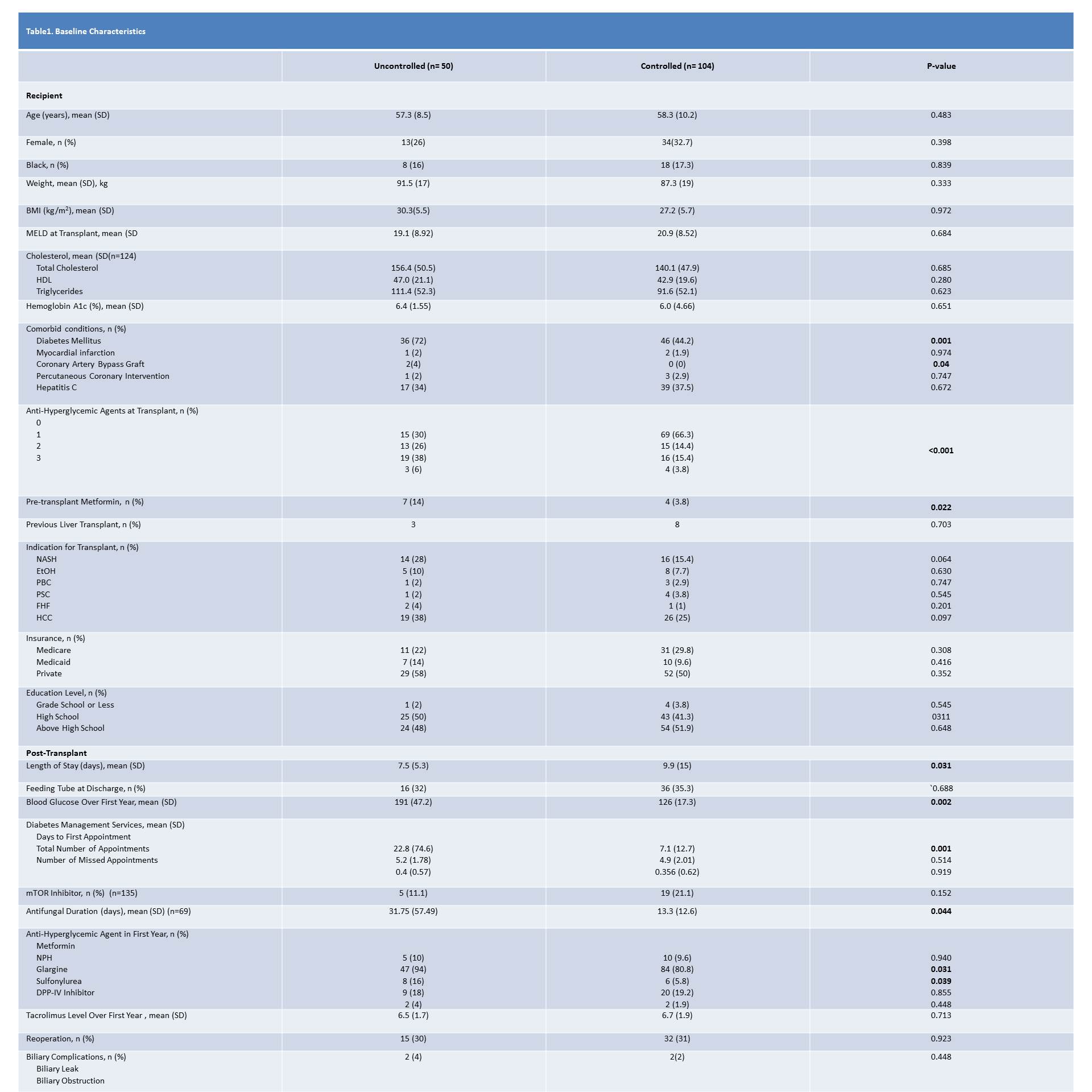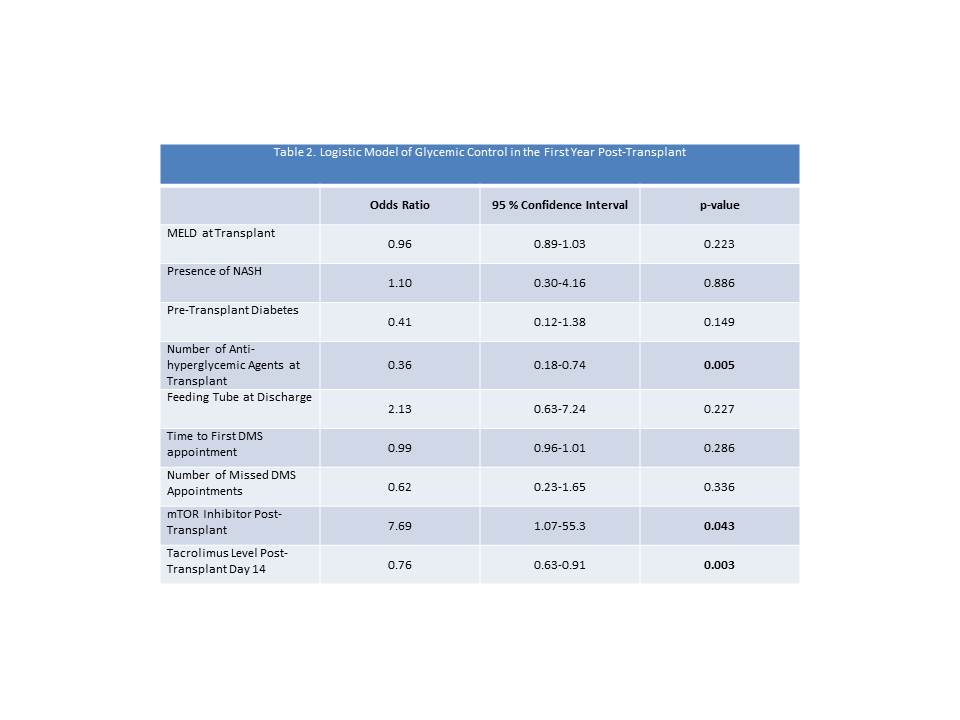Diabetes in Liver Transplantation: Evaluation of Management and Associated Clinical Outcomes.
1Department of Surgry Division of Transplant, Medical University of South Carolina, Charleston, SC
2Department of Pharmacy, Medical University of South Carolina, Charleston, SC
Meeting: 2017 American Transplant Congress
Abstract number: B219
Keywords: Immunosuppression, Insulin, Liver transplantation, Outcome
Session Information
Session Name: Poster Session B: Liver Retransplantation and Other Complications
Session Type: Poster Session
Date: Sunday, April 30, 2017
Session Time: 6:00pm-7:00pm
 Presentation Time: 6:00pm-7:00pm
Presentation Time: 6:00pm-7:00pm
Location: Hall D1
Purpose
There is limited data with diabetes management in liver transplant recipients and associated outcomes, this study aims to evaluate the long-term diabetes management in this population.
Methods
This was a single center, retrospective study of post-transplant diabetes management in adult liver transplant recipients from 2010 through 2015. Post-transplant diabetes was determined by the use of anti-hyperglycemic therapy at POD90. Patients <18 years old, who received multi-organ transplants, or had graft loss within POD30 were excluded. Diabetes control was determined by a mean glucose over the first year of ≤153mg/dL, which correlates with a HgbA1c of 7%.
Results
154 patients were identified as post-transplant diabetes and included in the study. Glycemic control was achieved in 104(67.5%) patients at 1-year. Significant pre-transplant differences were seen in the number of diabetes medications. Post-transplant glycemic control had differences in LOS, time to discharge follow-up, insulin use, and duration of antifungals, but not with immunosuppression exposures. A logistic regression analysis found the number of anti-diabetic medications used prior to transplant was a predictor of glycemic control in year 1.
Post-transplant glycemic control had differences in LOS, time to discharge follow-up, insulin use, and duration of antifungals, but not with immunosuppression exposures. A logistic regression analysis found the number of anti-diabetic medications used prior to transplant was a predictor of glycemic control in year 1. Exposure to mTOR inhibitors and tacrolimus exposure levels were predictive of glycemic control.
Exposure to mTOR inhibitors and tacrolimus exposure levels were predictive of glycemic control.
Conclusion
Pre-transplant diabetes control was predictive of control post-transplant and adjustments in mTOR inhibitors and tacrolimus may be associated with glucose control.
CITATION INFORMATION: Rogers A, Patel N, Meadows H, Mardis A, Fleming J, Perez C, Lee I, Sell M, O'Brien B, Taber D, Chavin K, Dubay D, Mardis C, Pilch N. Diabetes in Liver Transplantation: Evaluation of Management and Associated Clinical Outcomes. Am J Transplant. 2017;17 (suppl 3).
To cite this abstract in AMA style:
Rogers A, Patel N, Meadows H, Mardis A, Fleming J, Perez C, Lee I, Sell M, O'Brien B, Taber D, Chavin K, Dubay D, Mardis C, Pilch N. Diabetes in Liver Transplantation: Evaluation of Management and Associated Clinical Outcomes. [abstract]. Am J Transplant. 2017; 17 (suppl 3). https://atcmeetingabstracts.com/abstract/diabetes-in-liver-transplantation-evaluation-of-management-and-associated-clinical-outcomes/. Accessed February 27, 2026.« Back to 2017 American Transplant Congress
